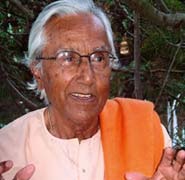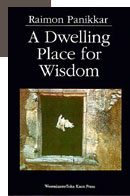

sito ufficiale


A Dwelling Place for Wisdom
As happened with other writings of this prolific author, the current Italian version of the original German Der Weisheit eine Wohnung Bereiten (1991) “can be considered something new”, although the original message of wisdom as “symbol of the fullness of life that imparts a certain interior peace and happiness has not substantially changed, and is as a whole a mature and profound vision of life.”
It is a book to read and re-read and meditate upon in the awareness that the wise person is “the one who has access to the whole (which is not the sum of its parts)”. It is a book written with an open mind and an openness to the dialog of which few are capable, appealing to Christian terminology, but also to Hindu and Buddhist; and what becomes evident through reading it is that man should not uselessly search for the “dwelling place of wisdom” but rather endeavor to convert himself into a place where wisdom can make its dwelling. To achieve this end, we must keep in mind that the opposite of wisdom is not, as it might seem, incapacity, nor ignorance, not even foolishness, but erudition, and that “desiring to know all is the true lack of wisdom”.
Recourse is frequent in this beautiful little book to a kind of overturning of the common places that characterizes many writings of this great philosopher, theologian and mystic of our time who is able to transmit to the reader the awarness that, as regards the spiritual life, is not so much making a conquest as making oneself available and open to welcome and accept its gifts.
In this world where wars are fought and murder committed in the name of some presumed possession of truth, Panikkar, recalling the teachings of St. Thomas Aquinas, reminds us that far from”possessing” the truth, we should learn rather to allow ourselves to be possessed by truth after having pulled away the many veils that hide it, and concludes that wisdom rises from silence, which is the true source of the being and the word.
translation from Italian
